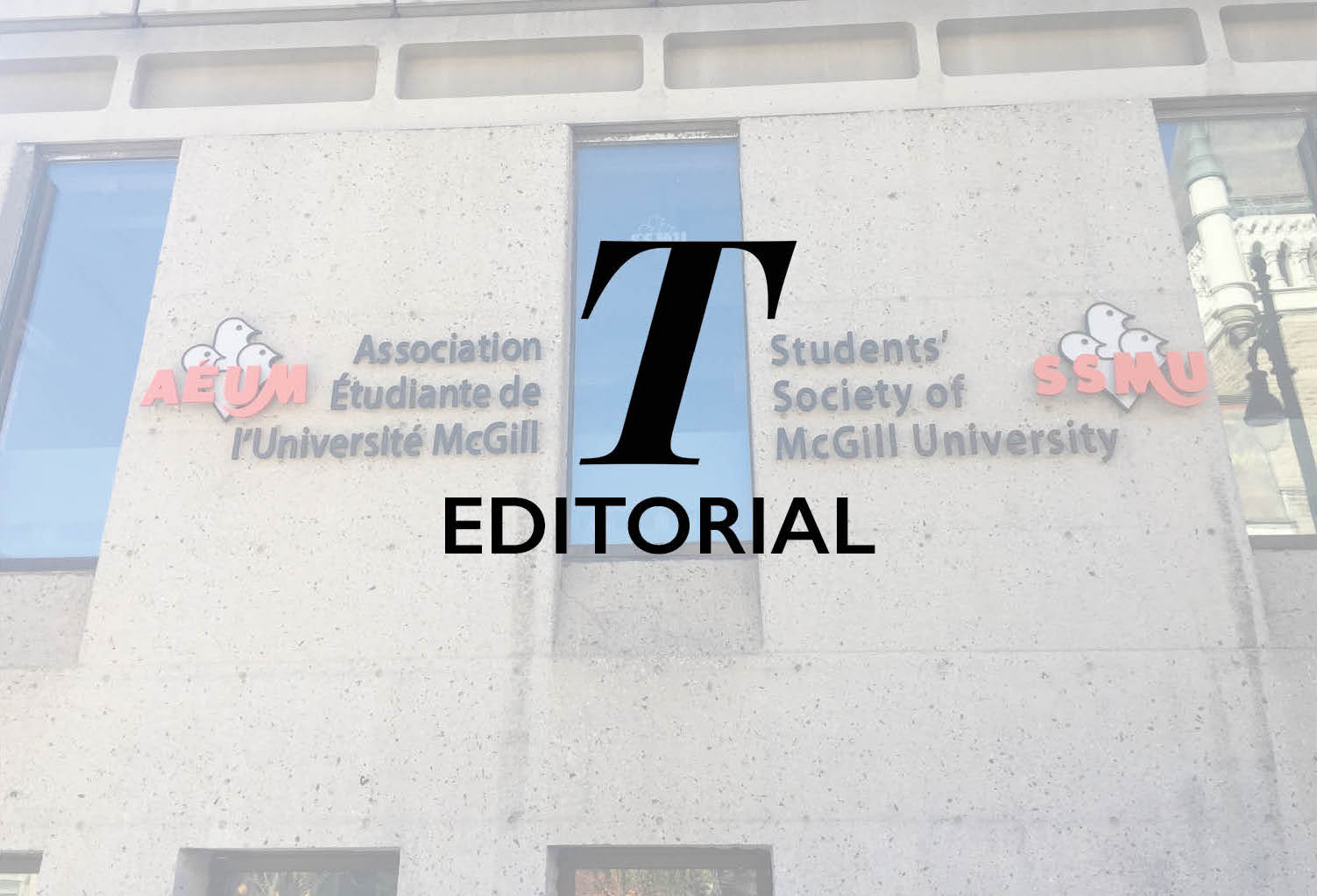Students’ Society of McGill University (SSMU) Vice-President University Affairs Brooklyn Frizzle recently submitted a motion that would have placed a proposed non–opt-outable SSMU Representatives fee to pay SSMU representatives on the Fall 2020 Referendum ballot. SSMU tabled the motion until Winter 2021, and some elements of the fee are still being refined. Still, it is already clear that, to meet SSMU’s pay equity scale requirements, the fee will likely have to be substantial.
Considering that McGill students have historically rejected many proposed fees and base fee increases, the Representatives Fee may be dead on arrival. Moreover, students are notoriously apathetic about SSMU elections, and student government is prohibitively unpopular because many students find it elitist and controversial. In this context, asking for a significant fee increase—let alone one to pay SSMU leaders—may invite a torrent of backlash from students. Nevertheless, student disinterest in SSMU must be overcome. SSMU works tirelessly to provide essential services to students—services which many students not only take for granted, but, in many cases, are necessary because the McGill administration fails to provide them. It is incumbent upon SSMU to make a good case for paying its representatives, but it is equally imperative that students support a fee to compensate student leaders.
By not paying councillors, SSMU may be violating its own labour policies. In 2017, it adopted a policy against unpaid student labour, and executives, remunerated staff, commissioners, and coordinators are salaried. Yet student senators and faculty representatives are not paid, even though these positions are often as demanding as some salaried positions. Officially, they are expected to work between four to seven hours a week, though this is rarely the reality. After all, this figure assumes that meetings do not go overtime, whereas they almost always do, and it does not factor in additional hours spent preparing documents, debating policies, participating in student activism, and tending to other aspects of the job. As a result, some attest to working exorbitant hours while also balancing full course loads and other commitments. This pressure, which often takes a toll on their mental health, is only exacerbated by the financial sacrifice some students make to volunteer to serve.
Although some may argue that the skills and experience obtained on the job are worth more than a paycheck, the lack of compensation presents an insurmountable financial barrier for many students. This barrier deprives SSMU of a vast reservoir of talent, diversity, and perspectives, limiting student government to the few who can afford to work part-time without pay. Compensation, then, is not just fair, but a prerequisite for a more accessible, equitable, and representative student union.
If SSMU moves to pay student representatives, it must be transparent about the source of the funds, and it must not divert funds from vital services, such as its mental health resources. It must also proceed cautiously, as proposing an additional fee may obstruct the SSMUnion’s collective bargaining efforts. Representative positions are not unionizable, and SSMUnion is already asking to raise the base SSMU fee. As a result, the Representatives Fee would require a separate question, increasing the likelihood that students would reject them both. This would be completely counterintuitive to fostering a more egalitarian labour environment.
To get any fee passed, SSMU must not only campaign relentlessly, but also show students why they should be investing their money in the union at all. Years of controversy have absconded its actual purpose: From academic advocacy to the SSMU Daycare, mental health resources, the Midnight Kitchen, and other services, SSMU supports the study body where the administration fails to do so. And when McGill’s governing is unjust, SSMU is there to advocate for students. SSMU’s shortcomings ultimately stem from the administration’s reluctance to support students, which strains SSMU’s resources and simultaneously increases the need for them.
SSMU is important, and it must effectively show students why. It is profoundly unjust that student representatives are not paid for their labour, but if SSMU wants students to foot the bill, they must show students why compensating their representatives will make their union more fair and accessible.







